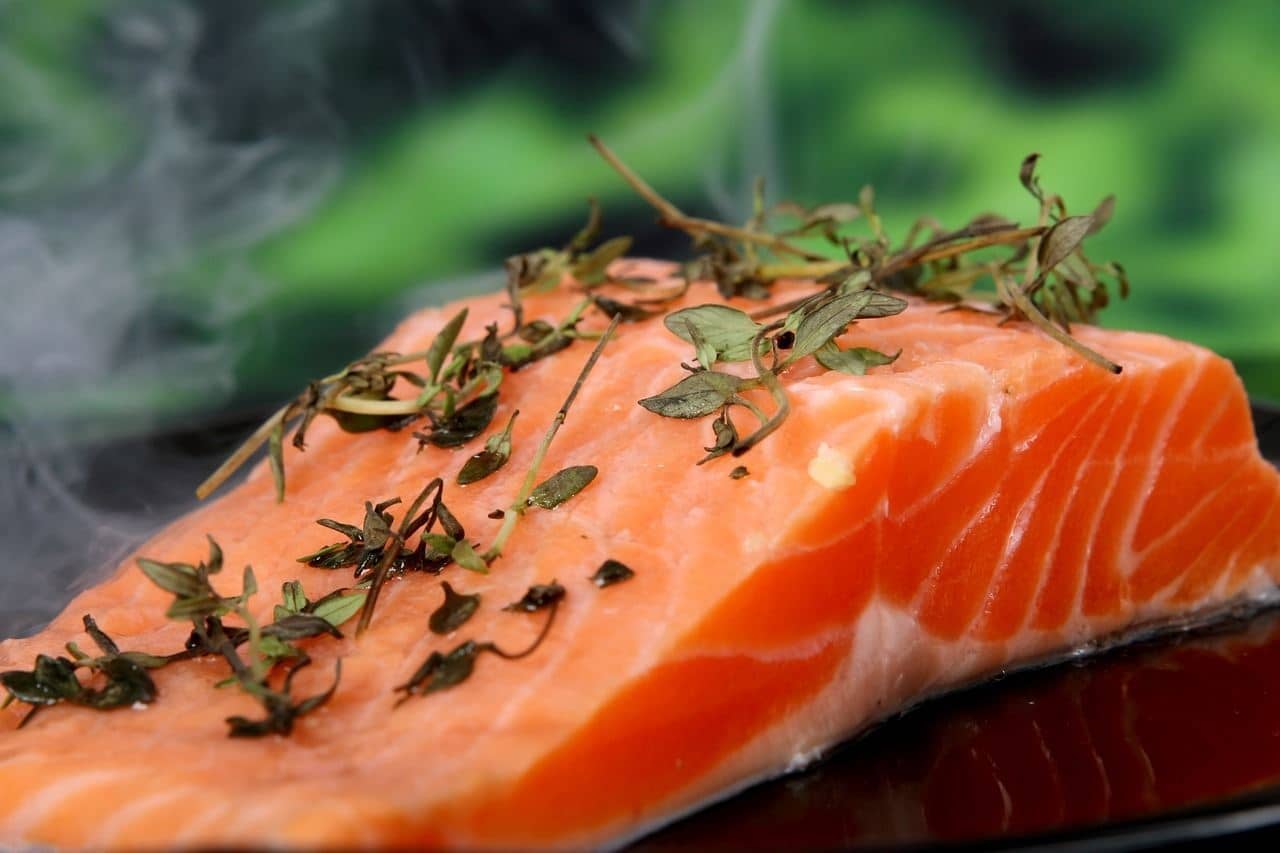Heart Healthy Diet Foods List

Statistically, as we reach middle age and beyond, our risk of heart disease increases dramatically.
It is in fact the leading cause of death in most Western countries, particularly the United States, Britain and Australia.
For men, the risk of a heart attack increases greatly after the age of 45 and for women, after the age of 50. The average age for the first heart attack in men is 64 and for women is 70.
Clearly, there are many, many factors that come into play, and your doctor is the first person that you should turn to for advice.
But diet is one of those factors. Obesity, eating too much of the wrong kinds of food and a large sugar intake all contribute to an increased danger of heart attack.
More...
Technological advancement in the medical field has come as a big relief for heart patients. By following a healthy lifestyle and undergoing regular check-ups, it is possible to live a life free of heart attacks. So take care of yourself.
Here is a list of 10 heart healthy foods.
1. Heart Smart Berries

Berries are chock full of heart-healthy phytonutrients and soluble fiber. Try blueberries, strawberries, cranberries or raspberries in cereal or yogurt.
Eating blueberries may help your memory, and they have high levels of compounds that help widen arteries, which helps blood to flow smoothly.
Rich in antioxidants, blueberries are also low fat, free of saturated fat, and a good source of fiber and vitamin C. No wonder they're linked to a lower risk of heart attack.
Raspberries are rich in heart healthy fiber; just half a cup delivers 4 grams. You also get 25% of your recommended intake for vitamin C and manganese too! They are low in fat and have high levels of polyphenols, which help reduce heart disease risk. Try to sneak these into your diet whenever you can.
Did you know that strawberries whiten your teeth? More importantly, they are heart-healthy and packed with vitamin C. They are also an excellent source of folate, which is a nutrient believed to help protect your heart.
Like blueberries, they contain compounds that help widen the arteries, which may prevent plaque buildup.
2. Salmon and Other Oily Fish

Eating salmon regularly has numerous benefits, including improved heart health. According to the U.S. Department of Agriculture, Americans only consume an average of 3.5 ounces of fish or other seafood each week, which is not enough to reap the full benefits.
Salmon is an oily fish and a rich source of protein, B vitamins, vitamin D and omega-3 fatty acids. Three ounces of wild Atlantic salmon cooked using dry heat contains about 22 grams of protein, 7 grams of total fat, 0 grams of carbohydrates and about 5 grams of heart-healthy unsaturated fatty acids.
High triglyceride levels increase your risk for heart disease. Consuming 4 ounces of Atlantic salmon can reduce your triglyceride level by 50%.
3. Healthy Nuts Like Almonds and Walnuts

Although a great deal of research suggests that nuts can benefit heart health and reduce the risks of dying early from heart disease and other causes, the evidence is still inconclusive. But, unless you're allergic to nuts, there's no real danger in eating them, so you can include nuts as part of your heart-healthy diet.
One way nuts may help your heart health is by lowering the low-density lipoprotein (LDL, or "bad") cholesterol levels. LDL plays a major role in the development of plaque that builds up on the blood vessels. Eating more nuts has also been linked to lower levels of inflammation linked to heart disease.
Eating nuts may also reduce your risk of developing blood clots that can cause a fatal heart attack. Nuts also appear to improve the health of the lining of your arteries.
Almonds, macadamia nuts, hazelnuts and pecans appear to be quite heart healthy. As well as peanuts (which are technically not a nut, but a legume, like beans).
Just don't eat your nuts covered with chocolate, sugar or salt.
4. Chicken

Chicken boosts your body in numerous ways with some of its main health benefits including higher energy levels, enhanced immunity and stronger bones.
It’s a great source of numerous vitamins and minerals including choline, phosphorus, selenium, vitamin B3 and vitamin B6.
Chicken is probably the most popular protein source out there due to its versatility and the ease with which it can be prepared.
If you’re looking for a great source of lean, low-fat protein, chicken is your go-to source. The protein in chicken lends itself to muscle growth and development and helps to support a healthy body weight and aids weight loss.
Chicken soup, chicken stew, chicken chili, chicken breast on salad…chicken in almost any form is great for your health. The health benefits of eating poultry are plenty. When it comes in a lean breast, it’s low in fat and calories and high in protein, which makes it ideal for weight maintenance. Not to mention that this bird is jam-packed full of essential nutrients and vitamins.
Plus, with so many ways to prepare it, your family won’t tire of chicken as a frequent weekly menu staple.
Interesting Fact: It’s estimated that there are more than 19 billion chicken alive at any one time, making it the most widespread domesticated animal.
5. Flax Seeds

Flax seeds contain omega-3 fatty acids, fiber and phytoestogens to boost heart health. Take them in ground or milled form to reap the greatest benefit.
They are also a top protein packed snacking option. As well as protein, these powerful seeds contain high levels of lignans and mono-unsaturated fats which help to fight inflammation in your body, prevent cancer, improve brain function and much more.
Flaxseed is not only rich in heart-healthy fiber, it's also a source of certain types of omega-3s fatty acids, similar to (though not the same as) the "good" fats found in oily fish like salmon. Research suggests that people at risk for heart disease benefit from getting omega-3 fatty acids from both fish and plant sources. Good news if you're not a big fan of seafood.
There is also some evidence that flax seed may help reduce your risk of cancer.
Ask your doctor about the benefits of flax seed. A few sprinkles mixed into your food every day could help lower your cholesterol and bring you better heart health!
6. Red Wine

A 4-ounce glass of red wine (up to two for men and one for women per day) can help improve good (HDL) cholesterol levels.
Red wine, in moderation, has long been thought of as heart healthy. The alcohol and certain antioxidants in red wine may help prevent coronary artery disease, the condition that leads to heart attacks.
While the news about red wine might sound great if you enjoy a glass of red wine with your evening meal, doctors are wary of encouraging anyone to start drinking alcohol, especially if you have a family history of alcohol abuse. Too much alcohol can have many harmful effects on your body.
Still, many doctors agree that something in red wine appears to help your heart. It's possible that antioxidants, flavonoids and a substance called resveratrol, may have the heart-healthy benefits.
The resveratrol in red wine comes from the skin of grapes used to make wine. Because red wine is fermented with grape skins longer than is white wine, red wine contains more resveratrol.
Resveratrol might be a key ingredient in red wine that helps prevent damage to blood vessels, reduces low-density lipoprotein (LDL) cholesterol (the "bad" cholesterol) and prevents blood clots. Some research shows that resveratrol could be linked to a lower risk of inflammation and blood clotting, which can lead to heart disease
7. Asparagus

It's funny how your tastes can undergo a 180 degree turnaround.
As a kid, I couldn't stand asparagus. To the extent that I didn't like being in the same room as it because of the awful smell.
Then one day as an adult, someone made me a sandwich with asparagus tips in it. I ate it, at first out of politeness, but then because it was so delicious. And I've been hooked on the flavor, the moistness and the texture ever since.
Just as well, because it's a great food for a healthy heart. Experts consider asparagus one of the world's healthiest foods. To reap the health benefits of asparagus for yourself, eat this super food as often as possible, as I now do.
Even if you don't enjoy the taste of asparagus, it's worth learning to like it. To motivate yourself, keep in mind its anti-cancer, anti-heart disease, and anti-dementia properties. Then try different asparagus recipes until you find one that suits your palate.
Sweet, tender asparagus is filled with mighty nutrients such as beta-carotene, folate and fiber, and only provide 25 calories per cup, or 5 calories per large spear.
8. Eggs

For a few decades, eggs had an unwholesome reputation. Thanks to its high cholesterol content, the egg was deemed villainous. Years went by while many of us shunned eggs, ate only the whites, or ventured into the world of egg substitutes.
It was all a load of nonsense.
Eggs are truly a superfood. They provide one of the highest quality proteins of any food available with one egg supplying more than six grams of protein, or around 15 percent of the recommended daily value. The protein quality in an egg is so high that the scientists often use eggs as the standard for measuring the protein quality of other foods. Note that nearly half of the protein is in the yolk.
When scientists learned that high blood cholesterol was associated with heart disease, foods high in cholesterol logically became suspect. But after 25 years of study, it has become evident that cholesterol in food is not the culprit. Saturated fat has a much bigger effect on blood cholesterol.
With science on our side, we can once again enjoy the wonderfully nutritious egg. Along with milk, eggs contain the highest biological value (or gold standard) for protein. One egg has only 75 calories but 7 grams of high-quality protein, 5 grams of fat, and 1.6 grams of saturated fat, along with iron, vitamins, minerals, and carotenoids.
The egg is a powerhouse of disease-fighting nutrients
9. Spinach

Popeye was right – spinach packs a punch! Use it in sandwiches and salads instead of lettuce.
Spinach is rich in many important nutrients, including vitamin K, vitamin A, folate and vitamin C, yet contains a very small amount of spinach calories in each serving.
Additionally, although there are some carbs in spinach, it’s also very high in fiber, meaning it can help support regularity and keep blood sugar steady. The spinach plant is a vegetable that belongs to the Amaranthaceae family, which also includes other nutrient-rich plant foods, such as beets, Swiss chard and quinoa.
Foods in this family have been shown to be helpful in protecting the central nervous system, reducing inflammation and delaying the aging process by protecting cells against damage.
Spinach contains special protective carotenoid compounds that have been linked with decreasing the risk of many diseases, including cancer, heart disease, diabetes, neurodegenerative conditions and obesity.
Spinach’s phytonutrients include such carotenoids as beta-carotene, lutein and zeaxanthin, the same kind of antioxidants found in the carrot, kale and broccoli nutrition profiles as well. Spinach nutrition also supplies flavonoids, which are a type of powerful antioxidant that protect against disease by fighting free radical damage within the body. These protective compounds make spinach one of the best anti-aging foods available.
10. Heart healthy Fruit

Fruits such as oranges, cantaloupes and papaya are rich in beta-carotene, potassium, magnesium and fiber.
‘An apple a day keeps the doctor away’... they say. I would say not just Apple but Orange, Guava, Grapefruit, Peaches, Alma, Plums and so on and so forth….… There is a wide selection in fruits and vegetables in a pantry. All you have to do is include a wide variety of these fruits in your daily diet to increase the intake of fibre present in these foods. Fibre is the substance in foods, which is only partially digested or not-at-all digested in the body. Fibre is the key to protecting the heart as it not only helps to decrease bad cholesterol but also the total cholesterol itself.
Fruits also abound in natural antioxidants like Vitamin A, Vitamin C and Vitamin E along with many others, which decrease the build up of bad cholesterol (LDL) in the body. Fruits also help prevent heart disease, diabetes, cancer and other illnesses. So befriend fruits from today or in fact right NOW! Also consume fruits like guava, apple, pear etc unpeeled, as most of the fiber is present just beneath the peel.
Healthy Heart Diet Foods List
I hope you have enjoyed this list of foods that are part of a heart healthy diet.
Remember that the 7 major risk factors for heart disease are
- sedentary lifestyle
- high cholesterol
- high glucose
- obesity
- diet
- smoking
- high blood pressure
A heart healthy diet tackles 4 of these: high cholesterol, high glucose, obesity and diet. Possibly a 5th as a healthy diet can also reduce blood pressure.
That just leaves us with two - if you smoke, stop and if you spend all your time sitting, get out more.
